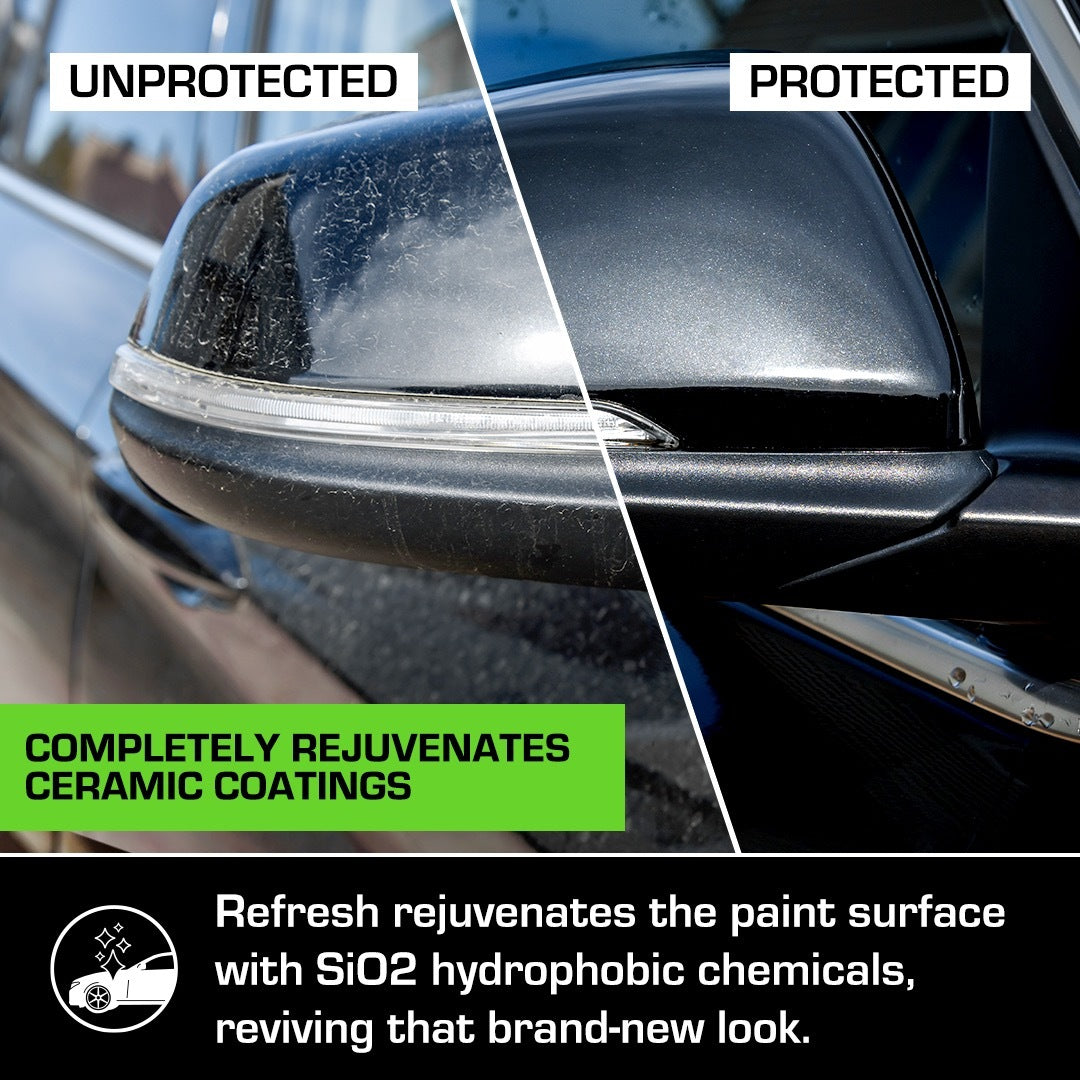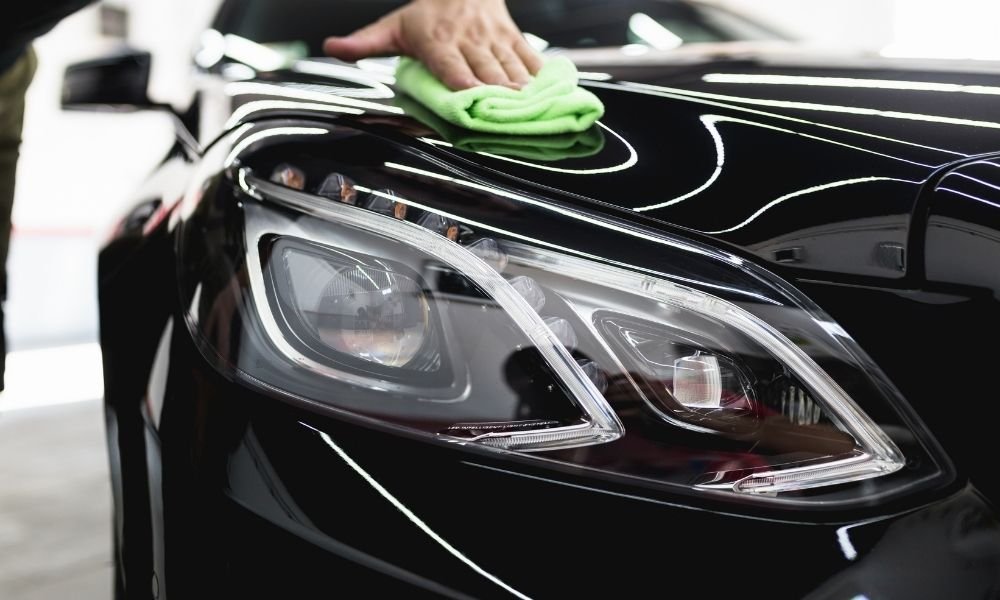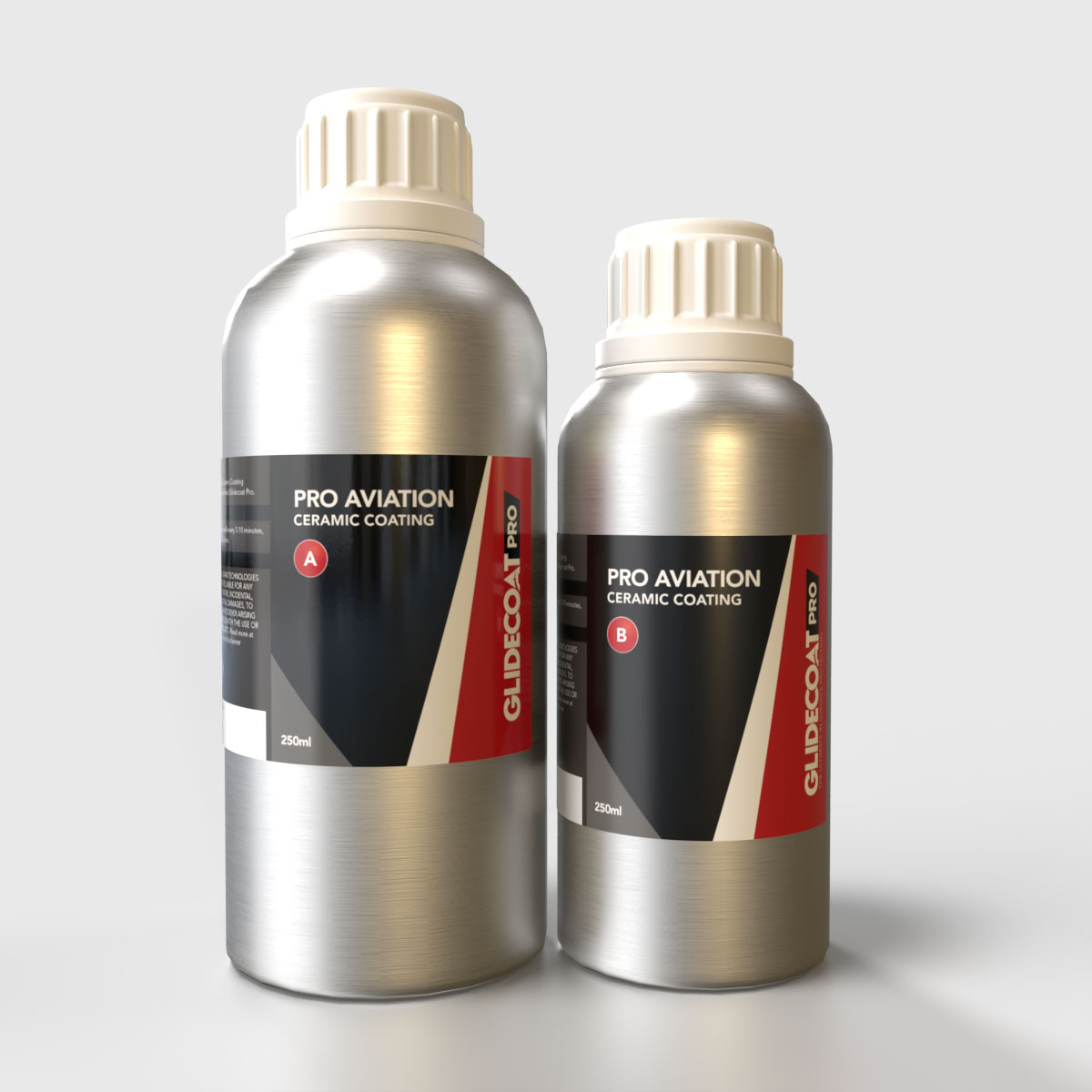Comparing Final Touch Auto Works Ceramic Coatings to Wax: A Detailed Look
Comparing Final Touch Auto Works Ceramic Coatings to Wax: A Detailed Look
Blog Article
The Ultimate Overview to Ceramic Coatings: Enhancing Your Automobile's End up and Sturdiness
If you're looking to raise your vehicle's appearance and protection, ceramic finishings may be the solution you have actually been looking for. These advanced finishings bond with your lorry's paint, creating a durable obstacle against ecological damage. But exactly how do they pile up against conventional wax? Recognizing the benefits and application procedure can make a considerable distinction in your car care regimen. Allow's explore what makes ceramic finishings a rewarding investment for your vehicle.
What Are Ceramic Coatings?
Ceramic coverings are innovative protective layers that enhance your automobile's outside. They're made from a liquid polymer that chemically bonds with your automobile's paint, producing a sturdy guard. Unlike standard wax or sealers, which diminish over time, ceramic layers give resilient security against ecological pollutants like UV rays, dust, and chemicals.When you apply a ceramic finishing, you're buying a barrier that fends off water, making it much easier to cleanse your automobile and maintaining it looking newer for longer. This technology helps preserve the honesty of your paint, decreasing the threat of scrapes and oxidation.Ceramic coatings been available in various formulas, each designed to satisfy different needs and preferences. You can pick a DIY package or go with professional application, depending upon your convenience degree and spending plan. In general, ceramic layers represent a cutting-edge remedy for maintaining your automobile's aesthetic charm and long life.
Advantages of Ceramic Coatings
You disclose an array of benefits that go beyond mere aesthetic appeals when you invest in a ceramic covering. To begin with, it supplies phenomenal protection versus ecological contaminants like dust, bird droppings, and UV rays, keeping your automobile's paint looking new longer. You'll see that upkeep comes to be easier, as the hydrophobic residential or commercial properties trigger water and crud to move off easily. This suggests much less time spent washing and detailing your vehicle.Additionally, ceramic coatings can boost the gloss of your auto's surface, providing it that showroom sparkle. They likewise offer resistance to scratches and swirl marks, which assists maintain your lorry's resale worth. With a ceramic finish, you're not just protecting your financial investment; you're likewise improving its total look and long life. Inevitably, this advanced technology warranties your auto stands out while taking pleasure in long-term benefits that standard waxes just can't match.
The Application Refine: How to Apply Ceramic Coatings
Applying a ceramic finishing entails numerous vital actions to assure perfect outcomes. Thoroughly wash your vehicle to get rid of any dirt, grime, or pollutants. This guarantees the surface is tidy and prepared for the layer. Next, decontaminate the paint utilizing a clay bar to eliminate ingrained particles. Later, evaluate the paint for imperfections and polish it to achieve a smooth surface.Once your cars and truck's surface area is prepped, use the ceramic finishing in little sections. Utilize an applicator pad to spread out the layer evenly, following the maker's directions. Allow the layer to heal for the recommended time, usually between one to two hours, depending upon the product.Finally, prevent cleaning your automobile for at the very least a week to let the layer bond effectively. Following these steps will certainly assist you achieve a long lasting, high-gloss coating that secures your cars and truck for several years to come.

Contrasting Ceramic Coatings to Typical Wax
After ensuring your cars and truck's surface is flawlessly prepped with a ceramic finish, it's time to contemplate just how this contemporary remedy piles up against typical wax. Ceramic layers provide a durable layer of security that lasts for several years, while wax generally offers only a few weeks of luster. You'll observe that ceramic finishings bond with your paint, developing a hydrophobic surface area that repels water and dirt, making maintenance easier.In comparison, traditional wax rests on top of the paint and needs constant reapplication. With ceramic finishings, you get superior scrape resistance and UV security, aiding to stop fading and oxidation. While the first investment for a ceramic finish is higher, the long-lasting advantages frequently exceed the prices. If you're looking for longevity and enhanced gloss, ceramic finishes are a wise selection over traditional wax.
Maintenance Tips for Your Ceramic Coated Automobile
To maintain your ceramic-coated automobile looking immaculate, regular maintenance is important. Begin with a gentle laundry utilizing a pH-balanced hair shampoo; prevent rough detergents that can deteriorate the finish. Use a microfiber wash mitt to stop scrapes and always rinse completely to remove any soap residue.After washing, dry your vehicle with a soft microfiber towel to avoid water spots. Consider applying a ceramic maintenance spray every few months to enhance the finishing's hydrophobic homes and add an additional layer of protection.It's likewise a good idea to stay clear of automated car washes with unpleasant brushes, as they can harm the coating. Instead, choose hand washes or touchless wash alternatives. Additionally, regularly check your vehicle for pollutants like tree sap or bird droppings and resolve them without delay to avoid etching. Complying with these suggestions will help maintain the luster and resilience of your ceramic-coated automobile for many years to find.
Common Myths Concerning Ceramic Coatings
Despite the remarkable advantages of ceramic finishings, a number of myths can develop confusion for cars and truck owners. One common misconception is that ceramic layers eliminate look at this site the demand for maintenance. While they do use enhanced security, normal washing and care are still important to preserve that high-gloss finish.Another misconception is that these finishings are scratch-proof. While they give a strong layer of protection versus small scratches, they can not hold up against extreme effects or unpleasant materials.Many also believe that ceramic finishes will certainly make their vehicles unsusceptible to all impurities. In truth, they ward off dust and water yet will not prevent problems like bird droppings or tree sap from triggering damages if left unattended.Lastly, some think that applying ceramic finishings is a do it yourself job anyone can deal with, however attaining a flawless application typically calls for expert know-how to guarantee peak results.
Picking the Right Porcelain Finish for Your Auto
Just how do you choose the appropriate ceramic layer for your car? Begin by thinking about the degree of defense you need. If visit the site your vehicle encounters extreme weather or regular trip, choose a premium finishing that provides superior resilience and resistance to scratches, UV rays, and chemical stains.Next, think of the application approach. Some finishes need expert installation, while others are DIY-friendly. If you're experienced, a DIY item could save you money, yet for the finest results, a professional can assure appropriate application.Don' t fail to remember to check the longevity of the finish. Some last a few years, while others can shield for a decade or more. Ultimately, read reviews and testimonials to gauge user satisfaction. By evaluating these variables, you'll find a ceramic view it covering that not only improves your auto's appearance but also offers lasting security.
Often Asked Concerns
For How Long Do Ceramic Coatings Last typically?
Ceramic coatings typically last anywhere from two to 5 years, relying on variables like application, upkeep, and ecological problems. You'll wish to comply with appropriate treatment regimens to maximize their longevity and efficiency.
Can Ceramic Coatings Be Applied Over Paint Scratches?
You can't apply ceramic finishings over paint scratches successfully. It's finest to fix any scrapes initially, making sure a smooth surface area - Final Touch Auto Works Ceramic Coatings. This means, the finishing bonds effectively and gives perfect security for your car's finish
Are Ceramic Coatings Safe for All Vehicle Surfaces?
Ceramic finishings are usually secure for the majority of cars and truck surfaces, consisting of paint, glass, and wheels. However, it is crucial to inspect certain item standards, as some layers may not be appropriate for particular products or finishes.

Will Ceramic Coatings Protect Versus UV Damages?

Can I Do Touch-Ups on Ceramic Covered Surfaces?
You can do touch-ups on ceramic coated surface areas, yet it's vital to utilize compatible products. Validate the location is clean and follow correct application strategies to preserve the finishing's integrity and efficiency. Unlike typical wax or sealers, which wear off over time, ceramic coatings provide durable defense against environmental contaminants like UV rays, dust, and chemicals.When you apply a ceramic covering, you're spending in a barrier that wards off water, making it easier to cleanse your cars and truck and keeping it looking more recent for longer (Final Touch Auto Works Ceramic Coatings). Afterward, inspect the paint for flaws and polish it to attain a smooth surface.Once your automobile's surface is prepped, use the ceramic covering in tiny sections. Permit the finishing to heal for the suggested time, generally in between one to 2 hours, depending on the product.Finally, avoid cleaning your cars and truck for at least a week to allow the finishing bond correctly. Consider using a ceramic maintenance spray every couple of months to enhance the coating's hydrophobic residential or commercial properties and add an extra layer of protection.It's likewise wise to prevent automated cars and truck washes with unpleasant brushes, as they can damage the layer. Ceramic finishes are normally safe for a lot of vehicle surfaces, including paint, glass, and wheels
Report this page